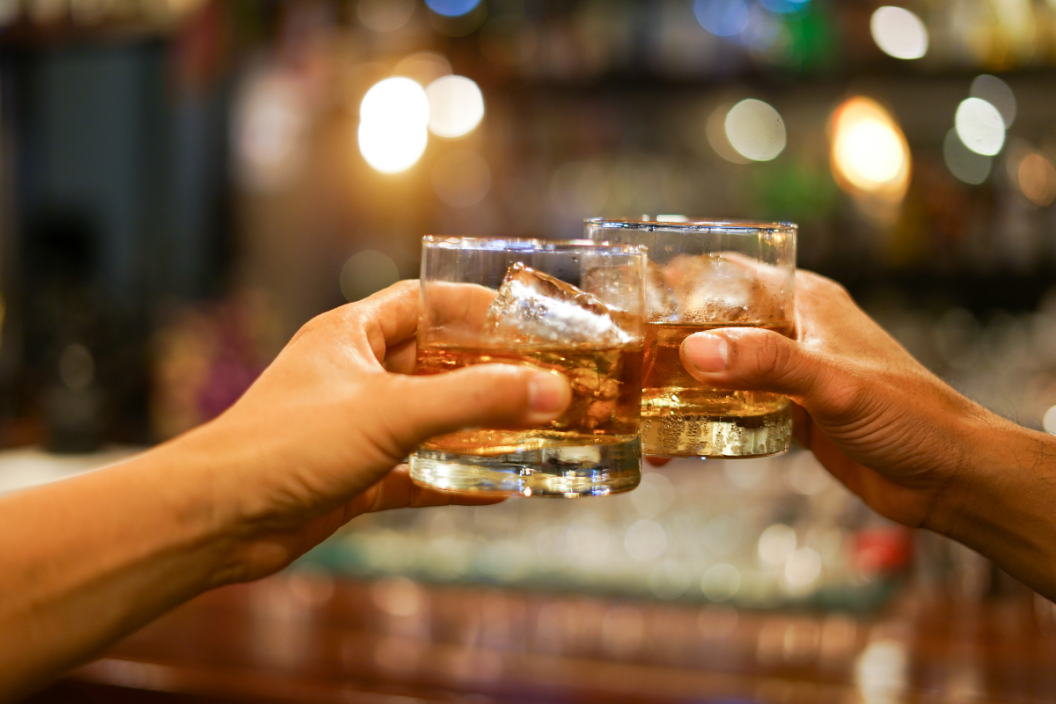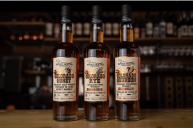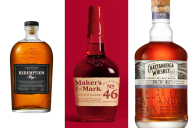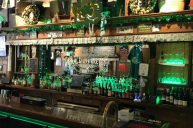Country music has long been saturated with the warm burn of whiskey. Put on a playlist of modern country songs and you'll find them rife with references. Chris Stapleton croons of "Tennessee whiskey." Miranda Lambert and Jason Aldean both have vocals on "Drowns the Whiskey." This is not a recent phenomenon with songwriters: You only have to listen to Willie Nelson's "Whiskey River" or Lynyrd Skynyrd's "Whiskey Rock-A-Roller" to begin to understand, but this tradition stretches far back into history, beyond Americana and modern distilling techniques.
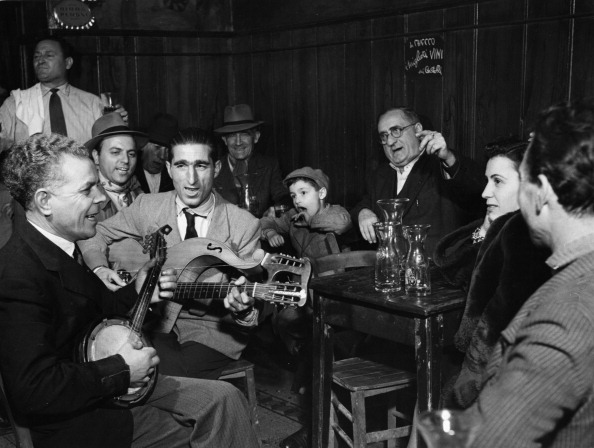
(Photo by Paul M. Pietzsch/Mondadori via Getty Images)
While drinking songs are a part of many cultures' history—as the best songs are often fueled by alcohol across the world—Appalachia and Ireland share a unique folkloric tune that stands apart from the rest: the whisky song. Both cultures have a long history of not only brewing alcohol but brewing it illegally. As scholar Emily Kader explains in her essay "Shared Traditions: Irish and Appalachian Ballads and Whiskey Songs," "What we do have is a song tradition that defiantly sings of the production and enjoyment of illicit whiskey on both sides of the Atlantic."
Whether they may speak of whiskey or poitin, these are love songs sung not about a woman, not about a drink, but about the life the moonshiner holds dear.
A Lot of History in That Glass of Whiskey
To understand the history of a whiskey song, first, we must understand the history of whiskey.
Whiskey's origins can be traced to the medieval monasteries of Ireland and Scotland, distilled from barley beer as wine as not yet readily available so far north. As The Spruce Eats explains, "The manufacturing of distilled spirits was limited to apothecaries and monasteries until the late 15th century." However, this isn't to say people weren't making homebrew: Poitin, "an ancient farm-based spirit," had been in individual production for centuries, although it was "traditionally made with starchy crops grown on the farm, which have since been limited by statutory definition to potatoes, cereals, grain, whey, sugar beet, and molasses," according to The Culture Trip. (Poitin can be spelled in a variety of ways, including the anglicized version, poteen.)
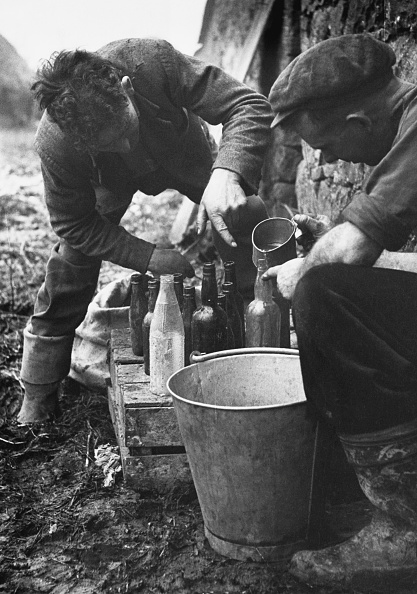
(Photo by © Hulton-Deutsch Collection/CORBIS/Corbis via Getty Images)
But by 1556, spirit distillation had grown so large that the Irish Parliament instituted licensing requirements for distillers. In the following century, a poitin tax failed, bringing King Charles II to ban the beloved drink in 1661. Poitin's illegal status made the beverage even more popular while forcing its production entirely underground. During this same time period, natives of the Scottish Lowlands began to flood into the Irish province of Ulster under a state-sponsored resettlement plan intended to fully colonize Ireland. As author Joseph Earl Dabney explains, "in Ulster, the inquisitive Scotch-Irish had learned everything possible from the distilling art (in addition to what they already knew) from the renowned Irish poteen makers."
Throughout the 18th century, Scottish and Irish emigrants flooded North America—more than 250,000 arrived between 1718 and 1774 alone. In Appalachia, these settlers became known simply as "Scotch-Irish," even if they were not a monolithic group descending from Scottish settlers on Irish soil. Rather, as Kader says, "They were a culturally ambiguous group that carried hybrid strains of oral tradition." This cultural ambiguity is readily apparent in the historic record: "The musical traditions of the Appalachian region, which show influences from both Irish and British song, offer some evidence that Protestant immigrants shared and exchanged folk traditions with their Catholic neighbors before leaving for America. Folk songs of Irish origin appear in Appalachia, and ballads from the region are rife with references to Ireland."
An American Twist
Drinking songs are common throughout the world, revered by any culture pleasantly preoccupied with both music and alcohol. Irish folk standards like "Whiskey in the Jar" and the Appalachian "Whiskey Before Breakfast" speak to this. However, beyond the hearty consumption, Irish and Appalachian drinking songs focus on another key aspect that links their culture and their folkloric traditions: the illegal production of cheap whiskey.
Although North American whiskey relied on corn rather than barley, due to the respective accessibility of each crop, the spirit immediately proliferated on American shores. As Dabney explains, the Scotch-Irish "brought their strong convictions to America, including a love a whiskey."
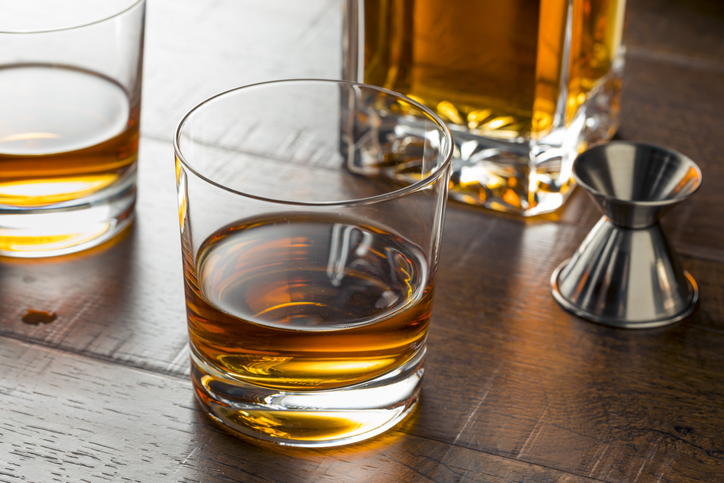
Getty Images
While Bourbon came to fuel Kentucky and rye whiskey in Pennsylvania, Appalachia ran on moonshine. The production of poitin was similarly geographically marginalized, with illegal production largely concentrated on the northern parts of the island. And while the word "moonshine" is rarely heard in Ireland, a traditional Irish folksong "The Moonshiner" speaks to these connections in earnest:
I've been a moonshiner for many a year
I've spent all me money on whiskey and beer
I'll go to some hollow and start up me still
And I'll make you a gallon for a ten shilling bill
I'm a rambler, I'm a gambler, I'm a long way from home...
Although academics continue to argue about the exact origins and influences of these ballads, scholar Emily Kader explains one thing we can comfortably know: "The nature of [the] orally transmitted folk song is to resist ownership, cross borders, and mutate but always to leave a palimpsest of its previous form."
Turn on your favorite whiskey-laced tune, and have a drink on me. It's always a good time for a whiskey lullaby.
READ MORE: The 10 Best Whiskeys Under $50 That Make Great Gifts
